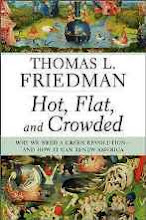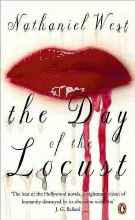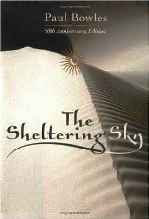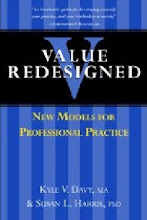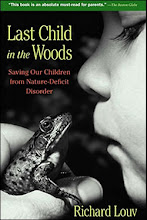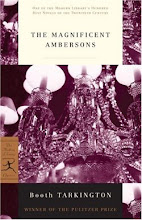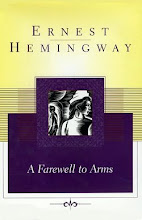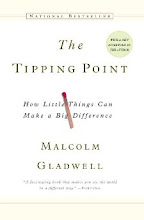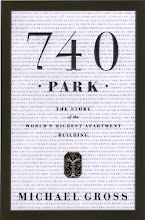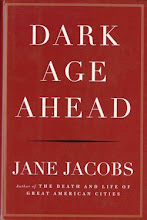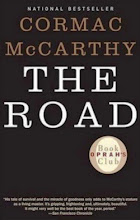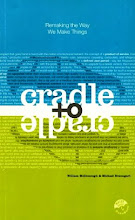 A few days ago I hear a phase that has me perplexed. Someone said “Do not confuse coincidence with fate”. It was a phase filled with meaning and deeper context. I’m convinced these simple six words contain the answer to many timeless riddles of existence. For days I’ve allowed the words to be analyzed by my subconscious mind in an attempt to render them down like you would a tough stew meat. Occasionally the words would be retrieved and inspected closely to see if their secrets were revealed. I have been unable to reconcile the contradiction of coincidence and fate.
A few days ago I hear a phase that has me perplexed. Someone said “Do not confuse coincidence with fate”. It was a phase filled with meaning and deeper context. I’m convinced these simple six words contain the answer to many timeless riddles of existence. For days I’ve allowed the words to be analyzed by my subconscious mind in an attempt to render them down like you would a tough stew meat. Occasionally the words would be retrieved and inspected closely to see if their secrets were revealed. I have been unable to reconcile the contradiction of coincidence and fate.Coincidence has two definitions according to the American Heritage Dictionary. The first definition of coincidence is “The state or fact of occupying the same relative position or area in space.” This definition is relative easy to understand and subsequently dismissed as not very insightful. This describes a state of proximity that places no importance on the events either proceeding or following the occupation of space. Random laws of probability can lead to a state of coincidence. The second law of thermodynamics (or the law of entropy) supports the concept of coincidence in chaos. The Law of Entropy holds the “tendency for all matter and energy in the universe to evolve toward a state of inert chaos”. Entropy is a measure of the disorder or randomness in a closed system. I can accept the fact that as objects in space evolve toward a state of entropy that certain random coincidence may occur. The definition of entropy can be expanded to the “inevitable and steady deterioration of society”. No additional deeper meaning is attributed to the fact that two objects occupy the same area in space. Essentially, everyone we meet is a result of random chaos.
As I was about to dismiss the first definition of coincidence I noticed an obscure definition of entropy “A measure of the loss of information in a transmitted message”. Chaos can be described mathematically, so it is measurable. In the same fashion coincidence can be described mathematically. Focusing on the randomness of coincidence may obscure its relevance. A higher the state of entropy equals a higher “loss of information in a transmitted message”. Could it be that coincidence is a message that has lost so much information that its origin is no longer apparent? This connection between coincidence and a degraded message can not be dismissed prematurely.
The second definition of coincidence is “A sequence of events that although accidental seems to have been planned or arranged”. This definition places coincidence in the context of a sequence of events. Space has been replaced by time. Physical proximity is not required. Coincidence is defined by its relationship to a series of events, rather than a point in space. Events either proceeding or following the coincidence have meaning in explaining the coincidence. The word ‘accidental’ in the definition can be replaced with random. Again the disorder or randomness can be explained as a measurable process. The operative word we need to explore is “seems”. Coincidence only “seems to have been planned or arranged”. The natural law of chaos only appears to have been altered by a series of events. We are not provided proof that the planned or arranged events have relevance, only that they seem to have relevance. What appears may be true or it may not be true?
On the other hand the word fate is defined as “the supposed force, principle, or power that predetermines events” or “the inevitable events predestined by this force”. Fate focuses on the power or force that arranges or plans a sequence of events. All events or actions can be reduced to a mathematical formula of probability, even chaos as noted earlier. Fate assumes that the relevance of the events is proven and inevitable. Fate assumes we are pawns helpless in our ability to change events that have been predetermined. Ralph Waldo Emerson said “Fate is nothing but the deeds committed in a prior state of existence.” The words fate and destiny are almost interchangeable in this context. It is a concept based on the belief that there is a fixed natural order to the universe. Fate describes a final result or consequence; an outcome that is sometimes unfavorable. It is also associated with doom.
To gain a deeper understanding of fate we need to look at the origin of the word in Greek & Roman Mythology. The Fates were three goddesses, Clotho, Lachesis, and Atropos, who control human destiny. The Fates or “Moirae” were the personifications of destiny. They controlled the metaphorical thread of life of every mortal from birth to death. Clotho spun the thread of life from her distaff onto her spindle. Lachesis measured the thread of life with her rod. Atropos was the cutter of the thread of life. She chose the manner of a person's death. When she cut the thread someone on earth died. Fate was allotted in proportions which could not be changed. Fate is used in regard to the finality of events as they have worked themselves out, and that same finality is projected into the future to become the inevitability of events as they will work themselves out.
While fate was personified as a god or goddess, destiny in has none of the negative connotations of fate. Destiny has the same root as "destination": destine, to direct something towards a given end. Without a subject's willful participation, there is no destiny. Destiny cannot be forced on someone; if they are forced into circumstances then that is their fate. The difference between destiny and fate is having control of the outcome or not.
Now that we understand the difference between coincidence and fate, how can we tell them apart? Is the introduction of an individual into my life a function of coincidence or fate? Families seem to fit the definition of fate. There is a truth to their connection with your life. They are related by blood. The relationship is predetermined to a degree. The fact that they are family cannot be changed. For better or worst they represent a series of events that define who you are.
Coincidence may be superficial and only appear to be meaningful. It’s like all those girls in high school that I would spend hours and hours talking on the phone to. At the time the relationships appeared to be meaningful, but in reality I’ve never spoken to most of them ever again. It was a coincidence that we both went to the same high school. I would almost classify those events as occupying the same space. Little from those events had the power to influence how I think today. The passage of time has given me the clarity to understand the superficial nature of some events, while others are more elusive. Let me restate the question again “could it be that coincidence is a message that has lost so much information that its origin is no longer apparent”? Has the mind erased so much of the memory that the experience is no longer important?
A number of years ago I was walking on a street late one night in Chicago. It was a bitterly cold night where as the local say the “hawk” was out. The street was desolate and abandon as if in a Hopper painting. In front of me was a small sandwich shop open catering to the late night crowd. The bright windows spilled light that cascaded over the cold concrete. The shop must to have been successful because it had grown to incorporate one or two of the adjacent businesses along the street. In doing so the shop had an entrance that was no longer used. The entrance was recessed slightly from the façade of the building to provide long forgotten customers protection from the weather. As I approached the shop I noticed a person sleeping in the entry. His body was thin and gaunt as he silently lay in a fetal position tucked into the corner of the abandon entry.
In the great depression people would say that he was “down of his luck”. The tattered wool coat that stretched past his knees was frayed. The dark brown wing tip shoes were probably once a successful businessman’s that were donated to a thrift store in exchange for a new fashionable pair. Scuffed and worn the soles of the shoes through two silver dollar holes revealed grey socks, evidence of the long journey they had seen. Facing the entry wall his face was covered by a soft fedora. The fedora had been pinched at the front and was worn pushed back on the head, with the front of the brim bent down covering the eyes. A thick mottled black and grey beard covered his wrinkled sturdy jaw. On his one hand was a thin wool glove which the fingertips were long rubbed away, exposing the first joint of each curled finger. Lying in a rumpled pile, he appeared to have fallen through time from the great depression only to land on the cold street in Chicago.
As I became parallel with the large shop windows I noticed a figure moving toward the doorway from inside the shop. He was a burly second or third generation European immigrant whose family decided to make his stand on this bleak corner years ago. His long white apron immediately identified him as the owner of the shop. As he opened the door I recognized what was going to happen. I braced myself for the confrontation of this proud shop owner verbally accosting and potentially physically removing this weary soul from his street. We have all experienced it before. Our natural reaction is to ignore the situation and without glancing to the side, walk unknowingly past the confrontation.
To my utter amazement, as the shop owner crouched over the sleeping figure his thick hands revealed a streaming Styrofoam cup of hot coffee and a sandwich carefully wrapped in a small brown paper sack. As not to wake the sleeping man, the coffee and sandwich was gently placed on the ground a foot from the man’s head. Silently the burly shop owner turned and retreated back to the warmth of the shop. Stunned at my miscalculation of the events I expected to witness, I stopped walking and faced the windows of the sandwich shop as the owner went back to his routine. I was genuinely moved by the simple act of compassion I observed. Without speaking to either individual I turned a headed back to my hotel, with my thoughts completely consumed with this expression of kindness.
Some would argue that it was coincidence that I was walking that lonely street at that particular time. Random probability placed the three of us in the same place at the same time. While the discovery was purely accidental, where is no evidence of the event being planned or arranged? Did I experienced nothing more than the law of entropy that predicts numerous meaningless encounters or was there a purpose? Would the event have been different if I was not there to witness it? I think not. The shop owner was already in the process of preparing the sandwich long before I turned down the street past his shop. I’m not even sure he ever recognized my presence as I walked by. It might be considered coincidence except for the fact that it set into motion a series of planned actions in my life. Coincidence would have been if I experience the event, then saw it on television later in the evening, eventually dismissing it as only interesting. I must dismiss the experience as pure coincidence since it altered or “predetermined” my future respond to many situations. It must to have been fate that directed me to this point in time.
Fate assumes that this experience was “inevitable”. I was powerless to in any way change the course of events unfolding before my eyes. I was moved to this spot to learn or to be provided insight. I was forced into circumstances that then were my fate. The concept of fate seems so passive. A sense of fate in its oldest human sense is in the soldier's fatalistic image of the "bullet that has your name on it" or the moment when your number "comes up." We all seek to discover a hidden purpose in the random lottery that governs life and death. What troubles me with fate is that it ignores free will.
Free will is the philosophical doctrine that holds that our choices are ultimately up to ourselves. We control or determine the course of future events. In order to understand free will we need to define the philosophical doctrine of determinism versus indeterminism. The differences between the two are defined in Wikipedia. “Determinism holds that each state of affairs is necessitated (determined) by the states of affairs that preceded it, an extension of cause and effect. Indeterminism holds this proposition to be incorrect and that there are events which are not entirely determined by previous states of affairs.”
It goes on to provide the following discussion. “Some philosophers hold that determinism is at odds with free will. This is the doctrine of incompatibilism. Incompatibilists generally claim that a person acts freely (has free will) only in cases where the person is the sole originating cause of the act and the person genuinely could have done otherwise. This kind of free will is (at least allegedly) incompatible with determinism. If determinism is true, and everything that happens is completely determined by the past (including events that preceded our births), then every choice we make would ultimately be determined by prior events that were not under our control. Our choices would be just another outcome determined by the past. So if determinism were true, then we would be trapped by the past and free will would be an illusion, under the theory of incompatibilism.”
To simply our discussion, indeterminism conforms to concepts of both fate and coincidence. It is outside our ability to control or our comprehension to understand. On the other hand determinism is an expression of free will or destiny. An individual is capable of changing the future. Although some may argue destiny is a willing acknowledgement and pursuit of fate. I favor the idea that destiny embraces free will. Determinism is divided among two camps, those who believe that all actions are the product of free will and those that believe that free will is only extended to actions within an individual’s control. Limiting free will only to only personal actions leaves to many questions unanswered. In my mind every action has to be a product of free will, even inaction. Having the opportunity to act and deciding not to, is in itself an action of free will.
As I conclude this debate, I return to my original premise. Is it possible to determine if an event is coincidence or fate? The simple approach is to determine if the event has a meaningful impact on the course of one’s life. If not, it should be considered a coincidence. If it does impact one’s life it can be considered an expression of one’s fate. Clarity to tell the difference may only come over the passage of time and upon reflection. Only when an event is examined as a part of a larger series of events can its relevance to the future be assessed. Both coincidence and fate do little to capture the spirit of existence. It’s like reading the box scores of a baseball game long after the game has been decided. Fate or coincidence is allotted to those who do not possess the character of strength to live with the consequences of free will.
Free will allows us to forge our destiny. Although nobody knows what will happen in the future, we can be secure in the fact that we control our own destiny. Each action and decision is an expression of free will. This provides us the opportunity for self improvement and greatness. Good things come from your destiny. How can we confer greatness only to those few that are predetermined by fate? Are the rest of us doomed to being less than what we can be? Fate is an archaic tool that was used to subdue and pacify the common people in ancient feudal law. It is no longer relevant to society. The son of an immigrant is no longer confined only to be a menial laborer, but can control destiny and become president.
The phase “do not confuse coincidence with fate” is wrong. It represents an illusion of choice. The phase should read “do not confuse fate with destiny.” The chance encounter on a cold Chicago street was fate, but using that experience to change is destiny. Outcomes are not predetermined. Fate or coincidence may allow a chance encounter to occur, but destiny controls the meaningfulness or relevance of that meeting to the future. The terrible burden free will exerts on us is that of destiny unfulfilled. A dream ignored, an opportunity missed, a life not touched is destiny unfulfilled. The next time the future perplexes you remember “do not confuse fate with destiny”.













